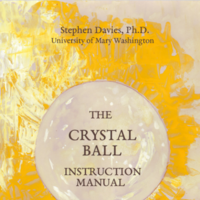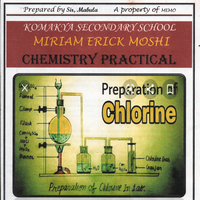Search
Books+
Searching 1,730 books
Search related to the career Materials Scientist
Materials Scientist Job Description
A materials scientist is a professional who studies the properties, structure, and performance of various materials to develop new materials or improve existing ones. They work in a wide range of industries, including manufacturing, aerospace, electronics, healthcare, and energy.
Responsibilities:
- Conduct research and experiments to analyze the properties and behavior of materials.
- Develop and test new materials with specific characteristics for various applications.
- Collaborate with engineers and designers to determine material requirements for specific projects.
- Use advanced techniques and equipment to analyze the structure and composition of materials.
- Evaluate the performance and durability of materials under different conditions.
- Identify and solve material-related problems or defects.
- Stay updated with the latest advancements in materials science and technology.
- Write technical reports and present findings to colleagues or clients.
Skills and Qualifications:
- Bachelor's degree in materials science, chemistry, physics, or a related field. A master's or Ph.D. may be required for advanced research positions.
- Strong knowledge of materials science principles, including structure-property relationships.
- Proficiency in using various laboratory equipment, such as microscopes, spectrometers, and thermal analyzers.
- Familiarity with computer-aided design (CAD) software for modeling and simulation.
- Excellent analytical and problem-solving skills.
- Attention to detail and ability to work with precision.
- Strong written and verbal communication skills.
- Ability to work independently and collaborate with multidisciplinary teams.
How to Become a Materials Scientist:
1. Earn a bachelor's degree: Obtain a bachelor's degree in materials science, chemistry, physics, or a related field. Courses in mathematics, computer science, and engineering are also beneficial.
2. Gain research experience: Seek opportunities to work in research labs or participate in undergraduate research projects to gain hands-on experience in materials science.
3. Pursue advanced education: Consider pursuing a master's or Ph.D. degree in materials science to specialize in a specific area and enhance career prospects in research or academia.
4. Develop technical skills: Acquire proficiency in using laboratory equipment, computer-aided design software, and data analysis tools commonly used in materials science research.
5. Build a strong network: Attend conferences, join professional organizations, and connect with experts in the field to expand your professional network and stay updated with the latest advancements.
6. Gain practical experience: Look for internships or entry-level positions in industries related to materials science to gain practical experience and apply theoretical knowledge in real-world scenarios.
7. Continuously learn and grow: Keep up with advancements in materials science by reading scientific journals, attending workshops, and pursuing professional development opportunities.
By following these steps, you can embark on a rewarding career as a materials scientist and contribute to the development of innovative materials that shape various industries.
Source: Various AI tools



















